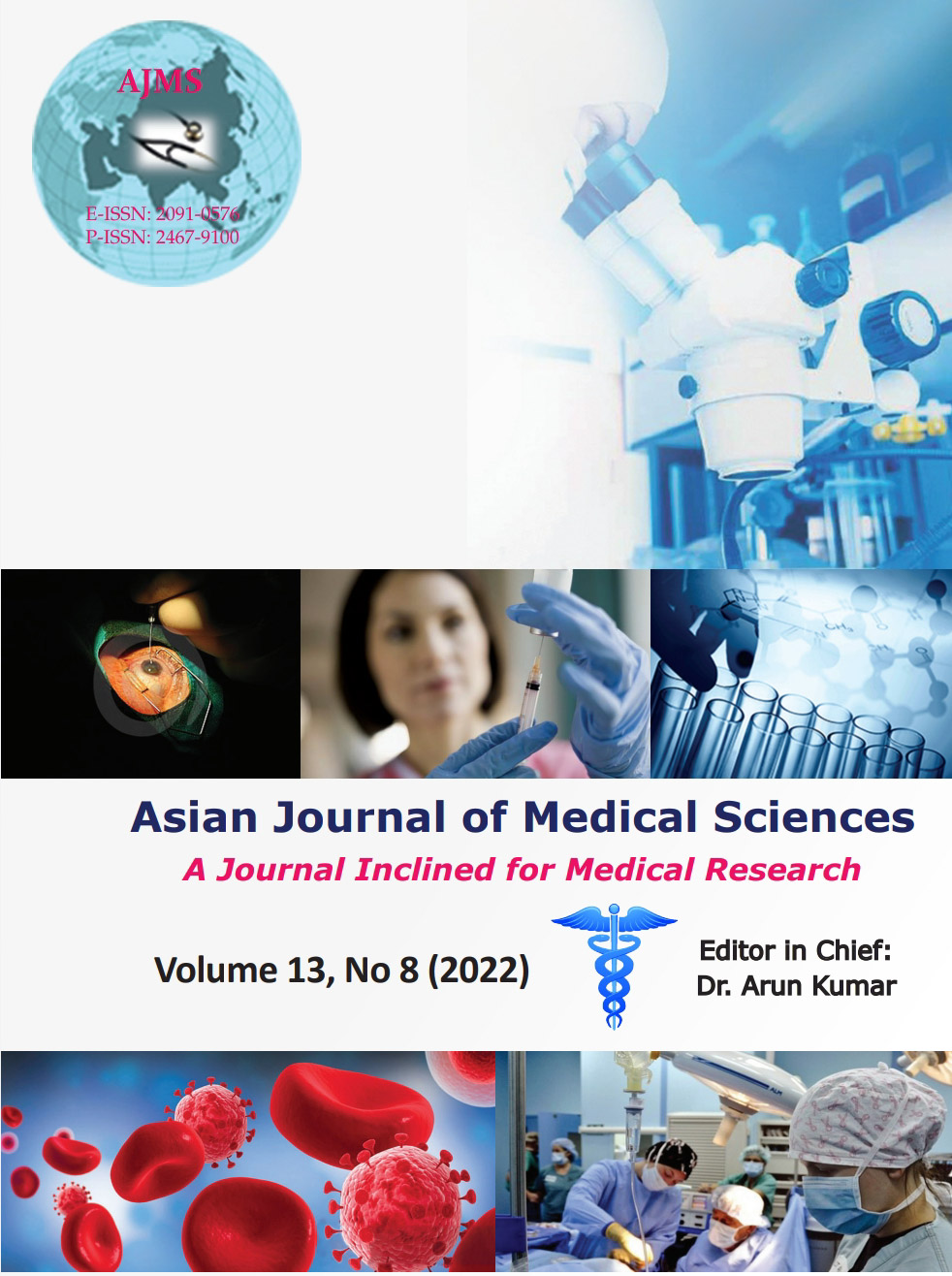A study of abnormal liver function in pregnancy and its correlation with fetomaternal outcome in a teaching hospital of Kolkata in Eastern India
Keywords:
Fetomaternal outcome; Jaundice; PregnancyAbstract
Background: Liver is a vital organ to maintain physiology of the body and supports every organ of the body. Its proper functioning during pregnancy is essential for a good maternal and fetal outcome. The study analyzes the causes and fetomaternal outcome in pregnancies and suggests measures to reduce morbidity and mortality.
Aims and Objectives: This study aims to analyze the maternal and fetal outcome in pregnancy complicated with abnormal liver function test.
Materials and Methods: This was hospital-based observational prospective study conducted at NRS Medical College and Hospital from March 2020 to August 2021. Total 144 pregnant women with abnormal liver function were included in the study. Template was generated and analysis was done on SPSS software.
Results: Among 144 pregnant women 44.4% patients were 21–25 years of age. About 79.2% patients had <2 serum bilirubin, 13.9% patients had 2–5 serum bilirubin, 2.8% patients had abruption, 11.8% patients had convulsion, and 9.3% patients had fetal bradycardia. About 13.9% patients had acute kidney injury, 22.2% patients had BT, 9.7% patients had hemolysis, elevated liver enzymes and low platelets, 15.3% patients had postpartum hemorrhage, and 3.8% patients had maternal death. In our study, 34.7% patients had pre-eclampsia and 11.8% patients had eclampsia.
Conclusion: Abnormal liver function during pregnancy is associated with adverse events for both the mother and the fetus. Regular antenatal check-up, screening, and diagnosing liver disorder can save the lives of many mothers and fetus.
Downloads
Downloads
Published
How to Cite
Issue
Section
License
Copyright (c) 2022 Asian Journal of Medical Sciences

This work is licensed under a Creative Commons Attribution-NonCommercial 4.0 International License.
Authors who publish with this journal agree to the following terms:
- The journal holds copyright and publishes the work under a Creative Commons CC-BY-NC license that permits use, distribution and reprduction in any medium, provided the original work is properly cited and is not used for commercial purposes. The journal should be recognised as the original publisher of this work.
- Authors are able to enter into separate, additional contractual arrangements for the non-exclusive distribution of the journal's published version of the work (e.g., post it to an institutional repository or publish it in a book), with an acknowledgement of its initial publication in this journal.
- Authors are permitted and encouraged to post their work online (e.g., in institutional repositories or on their website) prior to and during the submission process, as it can lead to productive exchanges, as well as earlier and greater citation of published work (See The Effect of Open Access).




